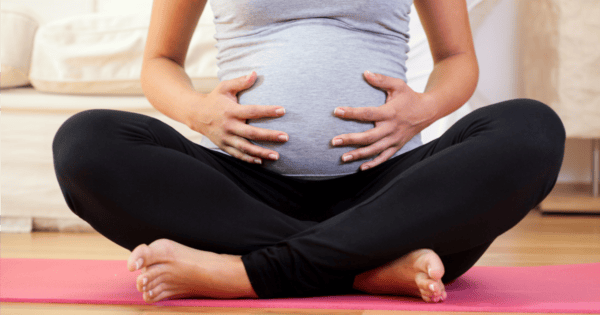The floods that hit Queensland in 2011, claiming the lives of more than 30 people, were a source of panic for affected residents as they worried for the safety of their families and their homes.
While it was undoubtedly an awful time for all involved, new research shows how the stress of the disaster impacted the development of babies that hadn’t yet been born.
Researchers from the University of Queensland’s Mater Research Institute studied how the floods affected local women who were pregnant at the time, and found those who experienced the most significant emotional hardship had babies with the most difficult temperaments.
Listen: The Bump podcast explains the role of a doula. Post continues.
In other words, a stressed mum-to-be made for an irritable baby.
Professor of Midwifery Sue Kildea, who led the study, said the team looked at how infants’ development was impacted at six months of age.
“Higher levels of hardship in pregnancy resulted in boys receiving more irritable temperament ratings than girls,” Professor Kildea said, adding that wasn’t where the difference in reactions by gender ended.
But it wasn’t just their parents who had to deal with more difficult babies; Prof Kildea said these traits were related to problems later on.
“Difficult temperament traits early in life are related to later mental health and childhood behaviour problems.”
Researcher Dr Gabrielle Simcock said high levels of stress in pregnancy affected girls’ problem-solving abilities more than boys, and girls also demonstrated poorer cognitive and motor development skills.
Meanwhile, pregnant women’s stress was actually linked to better fine motor development in two-month-old boys and improved problem-solving skills at six-months-old.
“Prenatal stress was further linked to lower scores in two-year-olds’ abilities to understand and predict another person’s emotions and behaviours – which could cause later problems with their ability to engage socially with others,” Dr Simcock said.





























































































